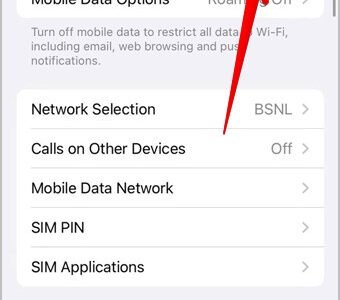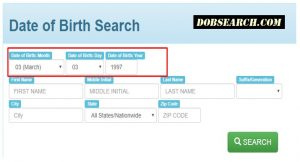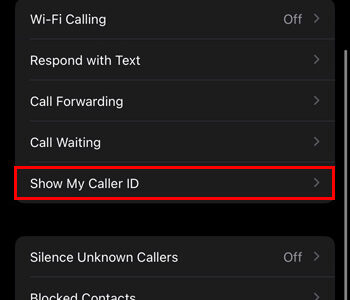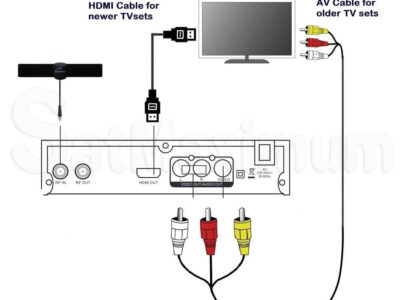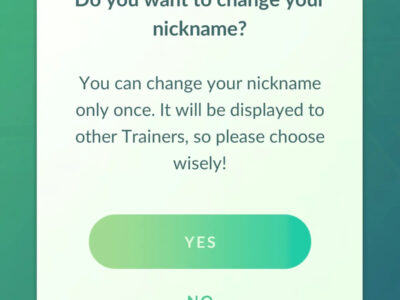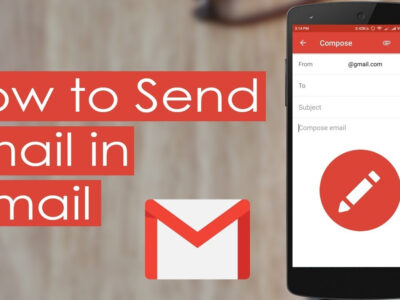Welcome to our easy-to-follow guide on understanding pending deposits with Chime! If you’ve ever found yourself wondering whether your incoming funds are just around the corner, you’re in the right place. We’ll walk you through the ins and outs of how Chime, a user-friendly financial platform, notifies you of any upcoming deposits. Whether you’re expecting a paycheck, a tax refund, or money from a friend, our guide will help you spot those pending transactions with ease. So sit back, relax, and let’s unravel the mystery of pending deposits together!

1. Check Chime Account Balance
Introduction:
Chime, a financial technology company, offers banking services through its mobile app and website, providing a simple and intuitive way to manage your money. When you’re expecting a deposit, such as a paycheck or a transfer from a friend, it may not immediately show as completed in your account. Instead, it could appear as a pending deposit, an indication that the transaction is underway but not yet finalized.
During this intermediate phase, the money is technically in transit, and while you can see evidence of the incoming funds, you aren’t able to use them until they clear. Checking your Chime account balance is one of the most straightforward ways to see if you have any pending deposits. It’s a process designed to be user-friendly, even for those who may not possess much technical or financial savvy.
Steps:
- Open the Chime mobile app on your smartphone or navigate to the Chime website on your computer. If you’re a new user, you’ll need to download the app from the App Store or Google Play Store first.
- If you’re not already logged in, enter your credentials (username and password) to access your Chime account. Make sure you keep this information secure to prevent unauthorized access to your account.
- Once you’ve logged in, you’ll typically be directed to your account dashboard. Here you can see your available balance displayed prominently.
- Look for any recent changes in your balance that could indicate a pending deposit. If you see your balance has increased, but the funds aren’t available for use, this could suggest a deposit is pending. It’s important to note that your displayed balance often includes both your available funds and any pending transactions that have been recognized by Chime.
- If necessary, you can also refresh your account information. Sometimes, the information displayed may not reflect the most recent activity due to timing or connectivity issues.
Summary:
Checking your Chime account balance to identify pending deposits is beneficial because it’s a quick and simple step that provides immediate information about your funds. This basic check can give you peace of mind if you see that a deposit is on its way. However, it’s important to remember that while a deposit may be reflected in your balance, you won’t have access to these funds until the transaction is fully processed and the deposit has cleared. Additionally, you may need to occasionally refresh your account information to ensure you have the most updated data.
2. Review Recent Transactions
When managing your finances, it’s important to stay up-to-date with all the activity in your bank account. For Chime users, one vital aspect is keeping track of any money that’s about to be deposited – these are known as pending deposits. Pending deposits are transactions that have been initiated but not yet completed. This might happen when your employer sends your paycheck, but the bank still needs to verify and process the transaction before the funds become available to you. Understanding how to review your recent transactions will help you identify these pending deposits so you can anticipate when you’ll have access to your money.
To review recent transactions and identify pending deposits within the Chime app or on the Chime website, follow these detailed steps:
- Open Chime App or Website: Start by opening the Chime app on your smartphone or navigate to the Chime website on your computer. Make sure you have a secure internet connection to protect your financial information.
- Log In To Your Account: Enter your username and password to log in to your Chime account. If you have trouble remembering your credentials, use the ‘Forgot Password’ feature to reset them.
- Navigate to Transactions: Once logged in, look for the section of the app or website labeled ‘Transactions’, ‘Activity’, or something similar. This section will display a list of your recent financial activities.
- Identify Pending Deposits: In your list of transactions, look for any entries that are indicated as ‘Pending’. These can appear in a different color or be marked with a ‘Pending’ label. These entries represent money that is on its way to your account but has not yet been cleared for use.
- Examine Details: Tap or click on any pending transactions to view more details. This typically includes information on the date the deposit was initiated, the expected date of completion, and the amount that is being deposited.
- Regular Review: Make it a habit to regularly check your recent transactions. This ensures you’re always aware of your financial situation and can plan your spending accordingly.
- Logout: Once you have reviewed your pending deposits, be sure to log out of your account, especially if you’re using a public or shared device, to maintain the security of your financial information.
Reviewing recent transactions on your Chime account is a simple and effective way to check for pending deposits. This solution allows you to closely monitor your financial activity and know when to expect new funds in your account. This step grants peace of mind and aids in better financial planning.
The benefits of using this method include being continuously informed about your financial status and preventing surprises related to account balances. However, it’s important to note that while pending transactions give you an insight into upcoming deposits, these funds are not yet available for spending. There might also be a slight delay between when a deposit is initiated and when it shows up as pending in your account. Regularly checking your recent transactions can help you better manage your finances and avoid accidental overdrafts or unnecessary worrying about when your next paycheck will come in.
3. Activate Chime Account Alerts
Introduction
In a world where financial security and awareness are paramount, staying on top of your account activity with ease is crucial. That’s where Chime Account Alerts come in – a feature designed to provide you with immediate notifications regarding financial transactions, including pending deposits. By activating Chime Account Alerts, you’ll unlock real-time updates, allowing you to keep a finger on the pulse of your finances without constantly logging into your account.
Steps
Here’s how you can set up Chime Account Alerts to monitor pending deposits:
- Download and Install the Chime App (if not already done):
Make sure you’ve downloaded the Chime mobile application to your smartphone or tablet. Visit the App Store if you’re using an iOS device, or the Google Play Store if you’re on an Android device and search for the Chime app. Download and install it. - Log In to Your Chime Account:
Open the Chime app and log in using your credentials. If you’re new to Chime and don’t have an online account yet, you’ll need to sign up and verify your identity before proceeding. - Navigate to Settings:
Once logged in, look for the ‘Settings’ icon, which typically resembles a gear or cogwheel. It could be on the main page, or you might have to tap a ‘Menu’ icon first to find it. - Find Alert Preferences:
In the settings menu, search for an option related to alerts or notifications. This could be labeled as “Alerts,” “Notifications,” “Account Alerts,” or something similar. Tap on it. - Customize Your Alerts:
Inside the alert preferences, customize which notifications you wish to receive. For pending deposits, make sure you enable alerts for ‘Deposit Notifications’ or any other similar option indicative of money entering your account. - Choose the Alert Delivery Method:
Decide how you would like to receive these alerts – via push notifications directly to your phone (which may require additional permissions), SMS text messages, or email. You can select one or more methods. - Save Your Alert Settings:
After selecting your preferences, save the changes. There might be a ‘Save’ or ‘Confirm’ button at the bottom of the screen. - Test Your Alerts (Optional):
If possible, test the notification setup by transferring a small amount into your Chime account from another account, or ask someone else to do so. This will ensure that the alerts are working properly.
Summary
Activating Chime Account Alerts offers a practical and efficient way to stay informed about your financial transactions. It provides peace of mind, knowing you’ll be notified instantly about pending deposits, which can help you manage your finances better. Aside from the convenience, this proactive monitoring can also help in early detection of unauthorized activity, thereby adding a layer of security to your account.
However, being constantly informed about account activities could potentially become overwhelming, especially if you receive a high volume of transactions. Additionally, you’ll need to ensure that your contact information is up to date, as outdated information might result in missing important alerts.
By understanding these minor caveats and managing your alert preferences accordingly, the benefits of activating Chime Account Alerts to track pending deposits significantly outweigh any potential downsides.
4. Contact Chime Customer Service
Introduction:
Occasionally, when you are expecting a deposit in your Chime account, it might not be immediately visible in your balance or recent transactions, or you might require additional confirmation regarding the status of the deposit. This is where the Chime Customer Service becomes a valuable resource. By reaching out to customer support, you can obtain real-time information on your account and any pending transactions. The representatives are trained to assist you with a variety of queries and can provide detailed insights into when and if a pending deposit is expected to be credited to your account. There’s also a chance that they can help troubleshoot any potential issues that might be delaying the deposit. Let’s go through the steps on how to contact Chime Customer Service for information on pending deposits.
Steps:
- Gather Your Information:
- Have your account details, such as your full name, email address associated with the account, and the last four digits of your Chime Visa Debit Card, ready. This will help customer service verify your identity quickly.
- Find the Chime Customer Service Contact Details:
- Visit the Chime website or open the Chime app on your smartphone.
- Scroll down to the bottom of the page or app where you should find the ‘Contact’ or ‘Help’ section.
- Choose Your Contact Method:
- Chime typically provides several methods to contact them, including a phone number, email, and in-app support. Pick the one that you’re most comfortable using.
- Make the Call or Send a Message:
- If calling, dial the customer service number and follow the voice prompts to reach a representative.
- If emailing or using in-app support, compose a clear message outlining your query about the pending deposit.
- Speak to a Representative or Wait for a Response:
- If you’re on a call, once connected to a customer service representative, explain that you are inquiring about a pending deposit.
- For written communications, wait for a response. This could take longer than speaking directly to someone, depending on the support traffic at the time.
- Follow Instructions Given by the Customer Service Team:
- The representative may give you specific instructions or information about your pending deposit. Make sure to follow any steps they give you, such as verifying your identity or providing additional information if required.
- Take Notes:
- During or after your interaction with customer service, take notes on the information provided and any further actions you need to take.
- End the Interaction:
- Once you have the information you need, thank the representative for their help and end the call or conversation.
Summary:
Contacting Chime Customer Service can provide peace of mind and valuable information regarding pending deposits. It’s a direct approach to resolving uncertainties or issues with your account. The benefits of this solution include personalized assistance and potentially speedy resolutions. However, potential downsides include waiting times to reach a representative, especially during peak hours, and depending on the complexity of your issue, it may not be resolved immediately. Nonetheless, the customer service route is an essential option for account holders who need detailed information and assistance with their Chime accounts.
5. Verify Deposit Details with Employer/Payer
Introduction
When you’re expecting a deposit in your bank account, such as a paycheck or payment from a client, the waiting can sometimes be a bit nerve-wracking. With banking apps like Chime, it’s easier to keep track of your funds, but there might be times when you’re not sure if a pending deposit is on its way. Verifying the deposit details with your employer or the person sending you money is a proactive step you can take to put your mind at ease. This solution involves reaching out directly to the source of the funds to confirm that the deposit has indeed been initiated. It’s a simple yet effective method to ensure that your expected funds are in the process of being transferred to your Chime account.
Steps
- Gather Your Employment Details or Payment Agreement: Before you contact your employer or payer, have your employment details or payment agreement on hand. This may include your pay stubs, contract, or any relevant invoices that outline expected payment dates and amounts.
- Contact Your Employer’s HR or Payroll Department: If you are employed, your human resources (HR) or payroll department would be the right point of contact. Call them or send an email inquiring about the status of your pending deposit.
- Reach Out to Your Client or Payer Directly: If the expected funds are from a client or an individual, send them a polite email or give them a call. Ask if they’ve initiated the deposit and, if so, when it was done.
- Request Transaction Details: Whether it’s your HR department or a client, ask for a confirmation number or transaction ID related to the payment. Also, request the date the transfer was initiated. This could be helpful if you need to further investigate with Chime.
- Check Your Email for Receipts or Confirmation Messages: Sometimes, the employer or payer will send an electronic receipt or confirmation of transfer. Make sure you check your email (including the spam folder) for any missed communications regarding your deposit.
- Wait and Check Your Chime Account After the Provided Date: If the employer or payer has confirmed that the deposit has been made, wait until after the date they’ve provided to check your Chime account for the pending deposit.
- Follow-up if Necessary: If the expected date has passed and there’s still no sign of the pending deposit, follow up with the employer or payer. There might have been a delay or issue that needs resolving.
Summary
By verifying deposit details with your employer or payer, you are asserting control over your financial situation. This personal initiative benefits you by providing peace of mind and clear timelines for when you can expect your money to arrive. It can also prevent potential stress caused by unexpected delays or errors in payment. A possible downside could be the time it takes to gather information and make contact with the relevant party. Additionally, obtaining specific transaction details from employers or clients can sometimes be challenging if their processes are not transparent or efficient. However, the comfort of knowing the status of your funds often outweighs these minor inconveniences.
6. Check Deposit Timing
Introduction
Understanding the deposit timing for an online banking service like Chime is crucial to managing your finances effectively. Many users of online banking services often anticipate the arrival of their money, such as paychecks or government benefits, but may not be familiar with how long it takes for these funds to be reflected in their account. Chime, like many digital banks, has specific time frames for when deposits are processed and made accessible to account holders. By having a grasp of these time frames, customers can better plan for bill payments, purchases, and other financial activities. This guide will walk you through how to check for pending deposits in your Chime account by understanding the expected timing for the deposits to show up in your account.
Steps
- Know the Direct Deposit Timeline: Chime typically makes direct deposits available as soon as they are received. This could be up to two days earlier than many traditional banks. Find out if this feature is applicable to your account and if your employer uses direct deposit.
- Learn About Chime’s Processing Schedule: Chime processes transactions only on business days, which do not include weekends or federal holidays. If you are expecting a deposit, keep in mind that it may be pending due to non-business days.
- Scheduled Deposit Time Frame: If you have a recurring deposit, such as a paycheck, note the time it usually arrives in your account. Most direct deposits are available by 9:00 AM Eastern Time (ET) on the scheduled payday. If it’s past this time and you do not see the deposit as pending, it may not have been sent yet.
- Early Direct Deposits: If you benefit from Chime’s early direct deposit feature, understand that while you may receive payments earlier than the scheduled payday, the exact timing can vary from pay period to pay period.
- Check the Status Regularly: If you expect a deposit, log in to the Chime app or website periodically, especially on the days leading up to and including your normal payday, to check if your deposit is showing as pending.
- Automated Clearing House (ACH) Deposits: For deposits that come through the ACH network (which is common for payroll and government benefits), the timing can depend on the processing speed of the payer’s bank and the ACH network. While Chime processes these payments upon receipt, they may show as pending until fully cleared, which may take several business days.
- Consult Chime’s Deposit History: Your Chime account keeps a history of all deposits. Analyze this history to learn when deposits typically arrive and use this information to gauge future deposits.
- Monitor External Factors: Sometimes external factors such as processing delays at the payer’s bank or federal holidays can affect when deposits appear in your account. While Chime works to make your funds available as quickly as possible, these external factors can result in deposits showing as pending for longer periods.
Summary
Checking deposit timing on Chime is a straightforward process that involves understanding and monitoring your account activity alongside Chime’s deposit processing schedule. Being aware of when your deposits typically arrive can save you from financial stress by allowing you to plan accordingly. It’s beneficial as it can help you to anticipate when funds will be available, especially if you take advantage of Chime’s early deposit feature. On the downside, there is still some unpredictability due to external factors, such as delays from payers or processing times due to holidays, that can inhibit the immediate accessibility of funds. However, with careful observation and understanding of your personal deposit patterns, you’ll be more equipped to predict and verify pending deposits effectively.
7. Look for Chime’s Expected Deposit Feature
Introduction
Understanding when money is going to hit your bank account is important, especially when you’re budgeting or waiting on an important payment like your paycheck or government benefit. Chime’s Expected Deposit Feature is a handy tool for anyone using Chime’s banking services. This feature helps users by providing them with information about incoming deposits before they are fully processed and available in their accounts. Having an insight into those expected deposits can give you peace of mind and help in planning your finances better.
Steps
Let’s break down how to use the Expected Deposit Feature in Chime to look for pending deposits:
- Access Your Chime Account:
- Start by accessing your Chime account. You can do this using your smartphone app or by visiting the Chime website and logging in with your credentials.
- Navigate to the Deposits Section:
- Once logged in, look for the section labeled ‘Deposits’ or similar. It might be found within your account summary or under a menu option related to money management.
- Check for the Expected Deposits Option:
- Within the Deposits section, there should be an area or an option that mentions ‘Expected Deposits’ or ‘Upcoming Deposits’. If this feature is available, this is where any known upcoming deposits will be listed.
- Review the List of Expected Deposits:
- In the Expected Deposits area, you will see a list of any known pending deposits. These are usually recurring deposits, such as paychecks or government benefits, that Chime has been informed about and expects to receive shortly on your behalf.
- Verify Deposit Details:
- For each expected deposit, check the details provided. This can include the payer’s name, the amount expected, and the expected date of deposit.
- Regularly Monitor the Status:
- Keep an eye on this list regularly, especially close to when you expect your deposit. Chime updates this information as new data comes in, so it can change as the deposit date approaches.
- Check After the Expected Deposit Date:
- If the expected deposit date has passed and the funds are not in your account, return to the Expected Deposits list to see if there’s been any change or update on the status. Sometimes deposits can be delayed due to processing times.
Summary
The Expected Deposit Feature of Chime is a powerful tool for users to keep track of pending deposits and manage their financial expectations. It is especially beneficial for those who receive regular payments, like a salary or government benefits, allowing them to see at a glance what funds are on the way and plan accordingly. The convenience of this foresight helps in avoiding overdrafts and ensuring budgets are met.
However, potential downsides include a lack of information on irregular or one-time deposits since they might not show up as expected deposits. Additionally, there may be discrepancies if a payer fails to notify Chime ahead of time or if there are delays in processing beyond Chime’s control. Users should use this feature in conjunction with regular account monitoring to ensure their financials are fully up-to-date.
8. Use Chime’s Mobile App Check Deposit
Introduction:
Mobile check deposit is a convenient feature offered by many banking apps, including Chime, that allows you to deposit checks into your account using your smartphone. With Chime’s Mobile App Check Deposit, you can easily deposit checks without the need to visit a bank branch or ATM. The deposited check usually shows up as a pending transaction as it undergoes the bank’s verification process before the funds become available in your account. This process is critical for those who rely on check deposits and value the flexibility and efficiency that mobile banking provides.
Steps:
- Download the Chime App: If you haven’t already, ensure that you have downloaded the Chime mobile app from the Apple App Store or Google Play Store and have registered for an account.
- Log In to Your Account: Open the Chime app on your smartphone and log in using your credentials (username and password).
- Navigate to Mobile Check Deposit: Once logged in, find the feature labeled “Mobile Check Deposit” in the app’s menu or dashboard.
- Prepare the Check for Deposit: Take the check you wish to deposit and endorse it by signing the back. Some checks may also require you to write “For mobile deposit only at Chime” beneath your signature.
- Capture Check Images: Follow the in-app instructions to take a clear photograph of both the front and back of your endorsed check. The app may provide a frame or guidelines to ensure the entire check is captured properly.
- Enter the Deposit Amount: After taking photos of the check, you’ll be prompted to enter the check’s deposit amount manually to confirm how much you are depositing.
- Review and Confirm: Double-check the information you’ve entered and the clarity of the check images. Incorrect information or a poor-quality image could delay the processing time.
- Submit the Deposit: Once you’ve confirmed that everything is correct, submit the deposit for processing. You should receive a confirmation that the check is being processed.
- Wait for the Funds: After submission, the deposited check will appear as a pending transaction in your Chime account. The time it takes for the check to clear will vary, but it generally completes within a few business days.
- Keep the Physical Check: It’s a good practice to retain the physical check until you have confirmation that the deposit has been fully processed and the funds are available in your account.
Summary:
Utilizing Chime’s Mobile App Check Deposit feature provides the convenience of depositing checks anytime and anywhere, saving you a trip to the bank. Customers reap the benefits of instant submission and speedy processing, along with peace of mind knowing they can deposit checks outside of traditional banking hours.
However, the potential downside is that the clearing process might not be instantaneous, and deposits may take several business days to become available, which can be a concern for those needing immediate access to the deposited funds. Additionally, new users may need some time to familiarize themselves with taking pictures correctly and using the feature effectively to avoid deposit errors. It’s essential to make sure that any photographed checks are clear and all details are legible, to prevent any processing delays.
9. Examine Email Notifications
Introduction
In the modern age of banking, staying informed about the activities in your bank account can provide peace of mind and help you manage your finances more effectively. For Chime users, one of the convenient features available is email notifications. These notifications are designed to keep you updated about various transactions, including when you have pending deposits. By enrolling in Chime’s email notification service, you can receive timely updates directly in your inbox, thus negating the need to constantly log into your app or website to check your account status. This can be particularly useful for those who expect regular deposits, such as a paycheck, and want to monitor when their funds are on the way to their account.
Steps
To set up and examine email notifications for pending deposits on Chime, follow these steps:
- Log In to Your Chime Account:
Begin by accessing your Chime account. You can do this by visiting the Chime website or opening the Chime app on your mobile device. Enter your login credentials to proceed. - Navigate to the Notifications Settings:
Once logged in, look for the settings or profile icon, which typically appears as a gear or your own profile picture. Click on this icon, and find the section for notifications or alerts. - Select Email Notifications:
In the notifications menu, you will see different options for how you can receive alerts. Select ‘Email Notifications’ to manage the alerts you receive through email. - Customize Your Email Alerts:
Chime typically offers various types of notifications that you can enable. Look for options related to deposits or direct deposits. Enable the notifications for any transaction you wish to be informed about, with a focus on pending deposit alerts. - Save Your Changes:
After selecting the desired email notifications, ensure you save your changes. There might be a ‘Save’, ‘Submit’, or ‘Update Preferences’ button at the bottom of the screen. - Confirm Email Address:
Make sure your correct email address is associated with your Chime account. You should receive a test notification or a confirmation email to verify the address is correct. - Check Your Email Inbox:
With notifications set up, check your email inbox regularly. If you are expecting a deposit, Chime will send you an email once the transaction appears as pending. - Monitor for Notifications:
Upon receiving a transaction alert, open the email to confirm the details. It should indicate that there is a pending deposit, along with any relevant details like the amount and the expected time until the funds are available. - Contact Customer Support if Necessary:
If you receive an email about a pending deposit but see no record of it in your Chime account, reach out to customer support for assistance.
Summary
The benefits of examining email notifications for pending deposits with Chime are multifaceted. It allows for effortless tracking of your finances without the need for daily logins, providing an added layer of convenience. Moreover, it acts as a proactive reminder to budget or reconcile your finances in anticipation of incoming funds. On the downside, relying solely on email notifications means that you might miss an alert if it gets caught in your spam filter, or if there are any disruptions to your email service. To mitigate this issue, it is advisable to regularly check your spam folder and verify that Chime’s sender address is marked as safe. Additionally, maintain consistent communication with your employer or deposit issuer to know when to expect transactions, which helps in correlating with the email alerts you receive from Chime.
10. Check for Bank Processing Times
Introduction
Understanding how bank processing times affect your account transactions is crucial when you are anticipating a pending deposit. Banks, including online financial entities like Chime, operate within a framework of standard business hours and processing schedules. This means your deposits—including direct deposits from employers or government benefits—may not show up in your account immediately. There are certain days of the week and holiday periods when banks do not process transactions, so learning about these timelines can help ease worries you might have about when your money will be available. In this section, I will guide you through the steps to take in order to understand bank processing times and how they relate to your pending Chime deposits.
Steps
- Learn Standard Processing Times:
- Start by familiarizing yourself with the standard processing times for most electronic transactions. This can typically be between one to three business days.
- Bank Business Days:
- Determine which days of the week Chime recognizes as business days. Usually, these are Monday through Friday, excluding public holidays.
- Transaction Cut-off Times:
- Understand the cut-off time for a transaction to be processed on the same business day. Transactions initiated after this time typically count as being processed the next business day.
- Weekend and Holiday Considerations:
- Keep in mind that weekends and federal holidays are not considered business days. Deposits made on these days are generally processed on the next business day.
- Check Chime’s Specific Policies:
- Go through Chime’s user agreement or FAQ to find out their specific processing times. This can vary slightly from general banking practices.
- Expect Delay for Initial Deposits:
- Be aware that the first deposit to a new Chime account may require additional processing time for security and verification purposes.
- Direct Deposit Posting Time:
- If you’re expecting direct deposit from an employer or government benefits, learn when Chime typically posts these deposits. Many users find that Chime makes funds available earlier than traditional banks.
- International Transactions:
- Note that deposits originating outside of the United States may involve longer processing times due to international processing requirements and verifications.
- Keep Track of Incoming Deposits:
- If you are expecting a deposit that does not seem to be showing in your account, note the date and time the transfer was initiated to estimate when it should be pending.
- Contact Chime if Necessary:
- If you believe there is an unusual delay, don’t hesitate to reach out to Chime for more detailed information about your specific transaction.
Summary
Understanding bank processing times, especially with online platforms like Chime, can greatly help in managing your financial expectations. Familiarizing oneself with the regular processing schedule can offer peace of mind and prevent undue stress when deposits don’t show up in your account immediately. On the plus side, it can help you plan your financial moves better, knowing when funds are likely to be accessible. However, one potential downside of these windows is that during holidays or weekends, you may experience delays that can affect your financial planning. Always try to anticipate these factors to avoid unexpected financial issues.
Conclusion:
Understanding pending deposits on Chime is crucial for managing your finances effectively. We’ve walked through the indicators of a pending deposit on your Chime account, and remember that these deposits signify incoming funds that are not yet fully cleared for use. Patience is key as typical processing times vary. Always ensure your Chime notifications are activated to stay informed about your account’s activity. For any uncertainties or further questions, reaching out to Chime customer support is a reliable step.
FAQs:
- What is a pending deposit on Chime?
A pending deposit on Chime is an incoming transaction that has been initiated but not yet completed. The funds are in the process of being cleared and should be available for use soon. - How long do Chime pending deposits take to clear?
Chime pending deposits typically clear within 1-5 business days, depending on the type of deposit and the originating bank’s processing time. - Will I get a notification for pending deposits on Chime?
Yes, if you’ve set up your account notifications, Chime will notify you when you have a pending deposit or when the deposit clears and becomes available in your account.



